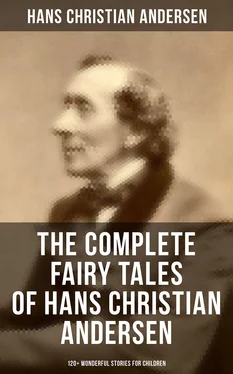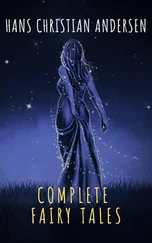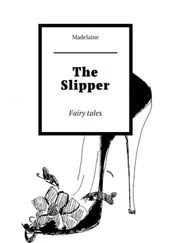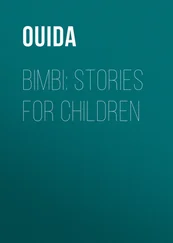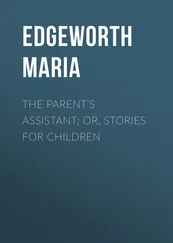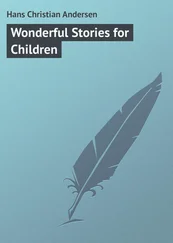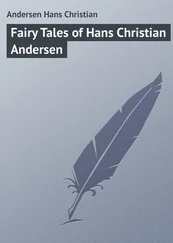“Either I behold a fata morgana, or I must be tipsy,” groaned the counsellor. “What can it be? What is the matter with me?” He turned back in the full conviction that he must be ill. In walking through the street this time, he examined the houses more closely; he found that most of them were built of lath and plaster, and many had only a thatched roof.
“I am certainly all wrong,” said he, with a sigh; “and yet I only drank one glass of punch. But I cannot bear even that, and it was very foolish to give us punch and hot salmon; I shall speak about it to our hostess, the agent’s lady. Suppose I were to go back now and say how ill I feel, I fear it would look so ridiculous, and it is not very likely that I should find any one up.” Then he looked for the house, but it was not in existence.
“This is really frightful; I cannot even recognize East Street. Not a shop to be seen; nothing but old, wretched, tumble-down houses, just as if I were at Roeskilde or Ringstedt. Oh, I really must be ill! It is no use to stand upon ceremony. But where in the world is the agent’s house. There is a house, but it is not his; and people still up in it, I can hear. Oh dear! I certainly am very queer.” As he reached the half-open door, he saw a light and went in. It was a tavern of the olden times, and seemed a kind of beershop. The room had the appearance of a Dutch interior. A number of people, consisting of seamen, Copenhagen citizens, and a few scholars, sat in deep conversation over their mugs, and took very little notice of the new comer.
“Pardon me,” said the counsellor, addressing the landlady, “I do not feel quite well, and I should be much obliged if you will send for a fly to take me to Christian’s Haven.” The woman stared at him and shook her head. Then she spoke to him in German. The counsellor supposed from this that she did not understand Danish; he therefore repeated his request in German. This, as well as his singular dress, convinced the woman that he was a foreigner. She soon understood, however, that he did not find himself quite well, and therefore brought him a mug of water. It had something of the taste of seawater, certainly, although it had been drawn from the well outside. Then the counsellor leaned his head on his hand, drew a deep breath, and pondered over all the strange things that had happened to him.
“Is that to-day’s number of the Day?” he asked, quite mechanically, as he saw the woman putting by a large piece of paper. She did not understand what he meant, but she handed him the sheet; it was a woodcut, representing a meteor, which had appeared in the town of Cologne.
“That is very old,” said the counsellor, becoming quite cheerful at the sight of this antique drawing. “Where did you get this singular sheet? It is very interesting, although the whole affair is a fable. Meteors are easily explained in these days; they are northern lights, which are often seen, and are no doubt caused by electricity.”
Those who sat near him, and heard what he said, looked at him in great astonishment, and one of them rose, took off his hat respectfully, and said in a very serious manner, “You must certainly be a very learned man, monsieur.”
“Oh no,” replied the counsellor; “I can only discourse on topics which every one should understand.”
“Modestia is a beautiful virtue,” said the man. “Moreover, I must add to your speech mihi secus videtur; yet in this case I would suspend my judicium.”
“May I ask to whom I have the pleasure of speaking?”
“I am a Bachelor of Divinity,” said the man. This answer satisfied the counsellor. The title agreed with the dress.
“This is surely,” thought he, “an old village schoolmaster, a perfect original, such as one meets with sometimes even in Jutland.”
“This is not certainly a locus docendi,” began the man; “still I must beg you to continue the conversation. You must be well read in ancient lore.”
“Oh yes,” replied the counsellor; “I am very fond of reading useful old books, and modern ones as well, with the exception of every-day stories, of which we really have more than enough.
“Every-day stories?” asked the bachelor.
“Yes, I mean the new novels that we have at the present day.”
“Oh,” replied the man, with a smile; “and yet they are very witty, and are much read at Court. The king likes especially the romance of Messeurs Iffven and Gaudian, which describes King Arthur and his knights of the round table. He has joked about it with the gentlemen of his Court.”
“Well, I have certainly not read that,” replied the counsellor. “I suppose it is quite new, and published by Heiberg.”
“No,” answered the man, “it is not by Heiberg; Godfred von Gehman brought it out.”
“Oh, is he the publisher? That is a very old name,” said the counsellor; “was it not the name of the first publisher in Denmark?”
“Yes; and he is our first printer and publisher now,” replied the scholar.
So far all had passed off very well; but now one of the citizens began to speak of a terrible pestilence which had been raging a few years before, meaning the plague of 1484. The counsellor thought he referred to the cholera, and they could discuss this without finding out the mistake. The war in 1490 was spoken of as quite recent. The English pirates had taken some ships in the Channel in 1801, and the counsellor, supposing they referred to these, agreed with them in finding fault with the English. The rest of the talk, however, was not so agreeable; every moment one contradicted the other. The good bachelor appeared very ignorant, for the simplest remark of the counsellor seemed to him either too bold or too fantastic. They stared at each other, and when it became worse the bachelor spoke in Latin, in the hope of being better understood; but it was all useless.
“How are you now?” asked the landlady, pulling the counsellor’s sleeve.
Then his recollection returned to him. In the course of conversation he had forgotten all that had happened previously.
“Goodness me! where am I?” said he. It bewildered him as he thought of it.
“We will have some claret, or mead, or Bremen beer,” said one of the guests; “will you drink with us?”
Two maids came in. One of them had a cap on her head of two colors. They poured out the wine, bowed their heads, and withdrew.
The counsellor felt a cold shiver run all over him. “What is this? what does it mean?” said he; but he was obliged to drink with them, for they overpowered the good man with their politeness. He became at last desperate; and when one of them said he was tipsy, he did not doubt the man’s word in the least—only begged them to get a droschky; and then they thought he was speaking the Muscovite language. Never before had he been in such rough and vulgar company. “One might believe that the country was going back to heathenism,” he observed. “This is the most terrible moment of my life.”
Just then it came into his mind that he would stoop under the table, and so creep to the door. He tried it; but before he reached the entry, the rest discovered what he was about, and seized him by the feet, when, luckily for him, off came the goloshes, and with them vanished the whole enchantment. The counsellor now saw quite plainly a lamp, and a large building behind it; everything looked familiar and beautiful. He was in East Street, as it now appears; he lay with his legs turned towards a porch, and just by him sat the watchman asleep.
Читать дальше
